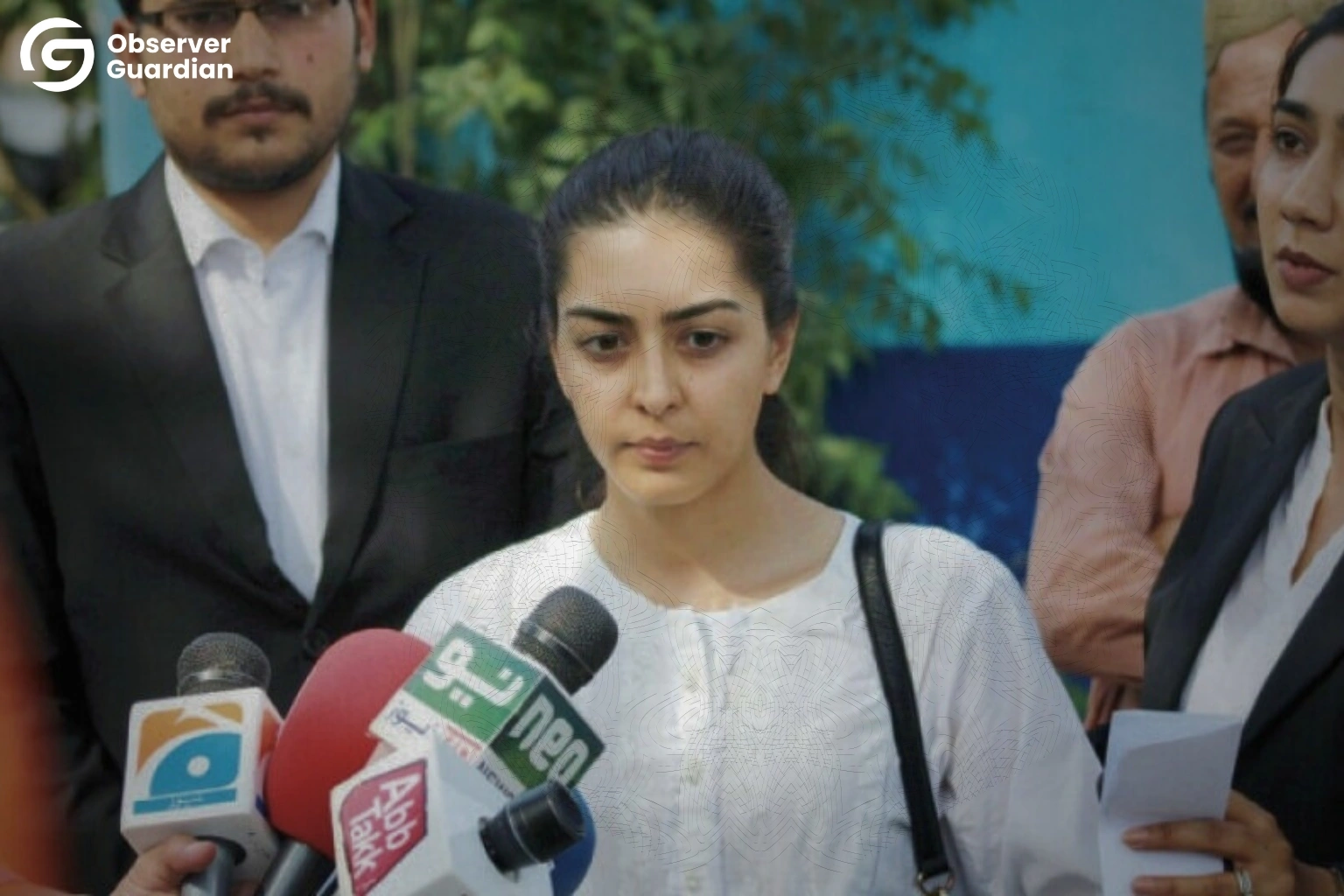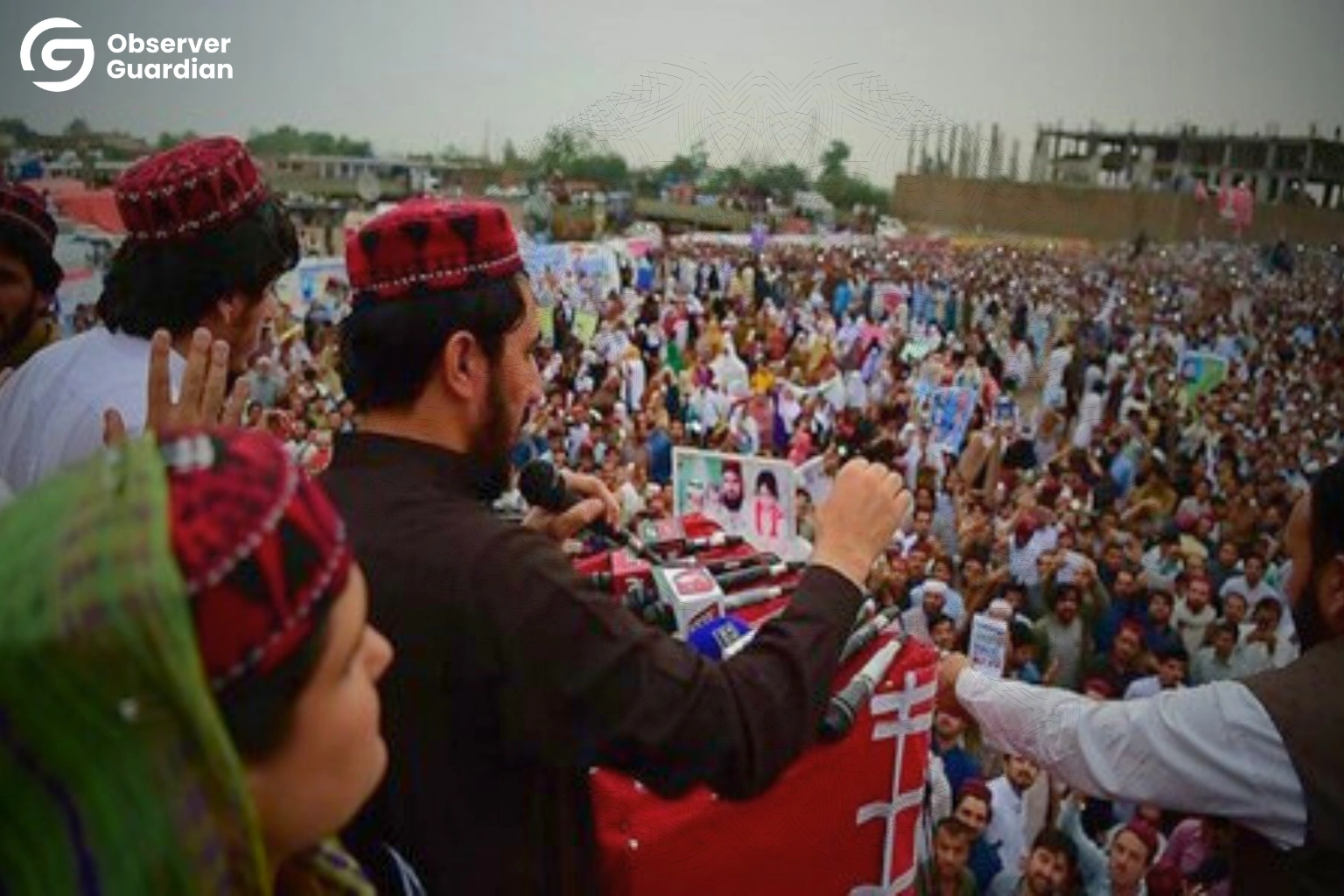Let us talk about the Imaan Mazari situation. It has been all over social media, and honestly, what is happening around it, says more about the politics of perception than about her actual case. Some PTM linked voices, like Zubair Shah Agha and Khushal Khan, have jumped on to the issue, and turned it into a campaign to discredit the judiciary. The claim is that Pakistan’s courts are under the thumb of the state, acting as instruments of oppression.
What is frustrating is that how selective that outrage seems to be. When the TTP attacks civilians or security personnel, there is silence. No candlelight vigils and no long threads about human rights are observed. Meanwhile, when someone with ties to PTM faces legal trouble, suddenly the same people who went missing during the terror attacks rediscover their moral voice. So, it is not about defending human rights, rather it is about playing politics through victimhood. By calling every legal action a “state harassment”, they shift attention of people away from the real threat, the terrorists who are still targeting our people.
To be clear, every citizen deserves fair treatment under the law. If the state oversteps, that should be called out. The courts have a process, and it is not always pretty, but painting every case as part of a grand conspiracy only fuels cynicism. That is exactly what these groups want. They want to make people lose faith in the system altogether. Once that happens, chaos takes over.
Response of people on digital platform
Moreover, the incident can be seen on social media platform. Videos clipped out of context, tweets filled with loaded language, all designed to convince people that Pakistan’s judiciary is a joke. Such kind of response is dangerous because if people start believing that justice is impossible, they stop believing in peaceful ways to fix things. Thus, they turn to extremes, and that is the kind of environment where groups like the TTP thrive.

Besides, not every PTM supporter is bad or disloyal. A lot of them are angry, and are right in their claims that how long their regions have been neglected. Their frustration is real, but there is a line between protesting injustice and actively tearing down the institutions that keep a country together. The current wave of PTM aligned rhetoric does not build anything. It feeds resentment, mistrust, and division. It is one thing to demand reform, and is another to turn every national tragedy into ammunition for an agenda.
Pakistan’s fight against terrorism
Additionally, Pakistan has already paid an enormous price in the fight against terrorism. Nearly 94,000 Pakistani civilians, soldiers and policemen have lost their lives over the years. Each of them was part of the effort to make this country a little safer. When people start mocking the sacrifices of those who fought the TTP or label counterterrorism efforts as “state violence”, it is more than just disrespectful, rather it is cruel.
Furthermore, people must not forget the judges and prosecutors, who risk their lives just to do their jobs. Some of them have been threatened or even killed. So, when someone casually claims that the courts are “state puppets”, it is worth remembering that they are human beings working under real danger. Their decisions are not always perfect, but dismissing their work as scripted or corrupt is an easy way to avoid any real accountability.
The concept of real human right work
However, the sad part is how easily “human rights” language gets co-opted. Real human rights work means standing with the families of terror victims, the people who have lost everything. The groups pushing the anti-state narrative have twisted the language of human rights into something else entirely, a political tool to defend their own. Hence, they are not protecting freedom, but they are using it as a shield for agendas that harm the country.
Pakistan’s biggest challenge is not just terrorism. But it is staying united against it. It means that every time PTM linked propaganda blames the state or the judiciary instead of the actual terrorists, it strengthens the enemy. It tells the world that Pakistan is too divided to stand up for itself.
Institutional weakness
Of course, no institution is perfect, neither the judiciary is. If judiciary collapses under public mistrust, Pakistanis will pay the price. That is why this campaign to paint it as “hostage to the state” is not just reckless, it is destructive. It feeds the exact environment in which violence, radicalism, and conspiracy theories flourish.
Need of the hour
Moving forward, people need to be smarter about this. They can criticize the state without tearing it apart. They can call for justice without becoming a mouthpiece for those, who hate the idea of Pakistan itself. What is happening with Imaan Mazari has been turned into a performance, one where facts matter less than who can shout the loudest online. That is not activism rather that is manipulation.
Finally, if Pakistan is ever going to move forward, it must draw a line between legitimate dissent and dangerous propaganda.
Supporting PTM’s current narrative does not bring justice, but it just deepens the mistrust and weakens the institutions trying to keep the country standing.
This is not about silencing criticism or labelling every dissenter as a traitor. It is about recognizing that not every fight framed as “resistance” is for justice. There are people and groups, who would rather see Pakistan as divided and exhausted. The Imaan Mazari case could have been a moment for serious debate about fairness and accountability. Instead, it has become a rallying cry for propaganda that only serves those, who thrive in country’s disunity.
⚠ Disclaimer
The views and opinions expressed in this article are exclusively those of the author and do not reflect the official stance, policies, or perspectives of the Platform.







